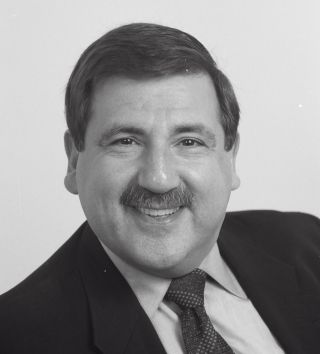Dr. Jack Drescher will be speaking at the conference, First Comes Love, Then Comes Divorce: Working with LGBTQ Families on Saturday, March 7 at the William A. White Institute. Click to register.

By Jack Drescher, M.D.
It is possible that the U.S. Supreme Court will soon make marriage equality the law of the land. If so, then courts in 50 states will be dealing with gay divorces. While there is a lot of press about gay marriage, there is much less reporting of gay divorces.
Several years ago I treated a middle-aged gay man who had recently broken up with his long-term partner. As legal gay marriage was not available at the time, there was no legal divorce. Nevertheless, breaking up, although amicable, was quite painful.
No particular incident had led them to separate—they had simply grown apart. In fact, a year before splitting, they bought a weekend house together. My patient received the property in their separation agreement and was having trouble selling it. This mostly stemmed from a reluctance to speak with his lawyer or to address the issue at all, even though holding onto the house was an emotional and financial drain that kept him from getting on with his life.
I asked the patient what might be holding him back? Every time he thought about the house, he felt a mixture of anger, despair, and anxiety that made him think he was going “crazy.” Or as he put it, “I think I was psychotic when we bought that property.”
Asked to explain, he said he and his ex-partner were having longstanding difficulties when they bought the house. Nevertheless, my patient thought that having a weekend place in the country might help. “It was crazy,” he once again added.
I asked how buying a weekend house to save a relationship was any different from a straight couple trying to save their marriage by having a baby? It might be ill advised, but it was hardly unusual, let alone psychotic.
His anxiety suddenly diminished and he said, “I never thought of that.” Then he remembered that when his relationship ended, he thought it was because “homosexuality doesn’t work.”
I thought it awfully burdensome to believe the end of one’s relationship represented an indictment of one’s sexuality. I wondered aloud if heterosexuals, when they divorce, felt that the dissolution of their marriages meant heterosexuality doesn’t work. Given the high divorce rate in the U.S., such beliefs could mean the end of sex as we know it. This made him laugh.
After several more sessions of exploring his irrational belief, he began working to resolve his legal difficulties. He sold the house and met a new partner. Eventually they bought a new house together and at the time he ended treatment, they were still together.
The divorce of Lisa Miller and Janet Jenkins did not have such a happy ending. Two Virginia women who moved to Vermont in 2000, they entered into a civil union, a form of “marriage lite” offered to gay people in some states before full marriage equality was available.
The Miller-Jenkins, as they came to be known, had a child, Isabella, in 2002. Lisa was the biological mother. The following year, they decided to “dissolve” their civil union. Although I have not personally examined either of them, the time frame between the birth of their child and the dissolution suggests that having a child may have been an effort to save their relationship.
Vermont’s courts treated them like a married couple and gave them both custody rights. However, in 2004 Lisa took Isabella back to Virginia. There she had a religious change of mind and became an “ex-gay.” This makes me think that perhaps like my patient, Lisa had also come to the conclusion that “homosexuality doesn’t work” after her relationship ended. In any event, she refused to allow visits from Isabella’s other mom Janet who was still gay.
Many lawsuits ensued with legal representation on both sides from national groups that support and oppose gay marriage. In the end, neither the Virginia nor U.S. Supreme Courts would overrule the Vermont courts and support Lisa’s position that Janet had no parental rights. In an unprecedented move, a Vermont judge granted sole custody to Janet after Lisa continued to defy its orders regarding visitation.
Shortly thereafter, Lisa fled the country with Isabella to Nicaragua and they are thought to be there to this day.
Clearly, gay divorces, like heterosexual ones, are painful. Whether amicable or acrimonious, they can provoke feelings of doubt, sorrow, loss of self-esteem, financial insecurity, and resentment of a former loving partner. And unfortunately, sometimes they create sensational headlines.
Jack Drescher, M.D., is a Training and Supervising Analyst, William Alanson White Institute. He serves on the World Health Organization's Working Group on Sexual Disorders and Sexual Health revising the ICD-11 and served on the DSM-5 WorkGroup on Sexual and Gender Identity Disorders. He is a frequent media spokesperson on issues of gender and sexuality.




